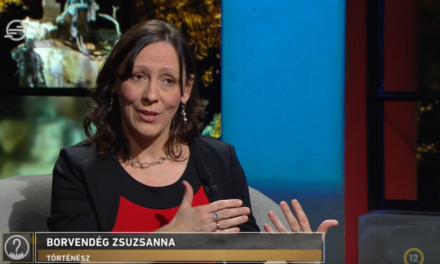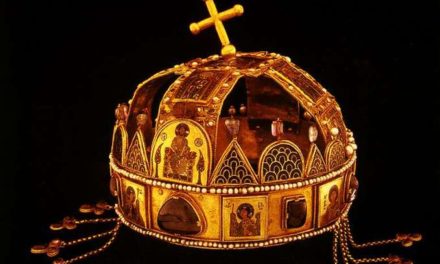Poetic questions follow: how can it be a dream couple that kicks horseshoes together during a celebration, or breaks up after a few weeks of relationship? How can the legendary indicator be of concern to newcomers at the beginning of their careers?
Ferenc Herczeg's novel, the metaphorical Álomország . (It's worth re-reading this forgotten writer as well.) "Paff, the magical dragon was not afraid of anyone, / He Dreamland " - many generations still hum the three-decade-old, unchangingly popular song of the band 100 Folk Celsius When reading the mentioned prose work, or when the old song comes to mind, we consider the word composition that is apt in both cases to be beautiful and accurate.
But when the media keep saying that "the teenage dream couple " or that "the dream couple " (they are no longer teenagers...), and "according to rumors, the dream trip to brought them together again"; and the media outlet continues to say that "the Czech dream couple " and that "the dream couple " - in this case we fall asleep reading the monotonous use of words, but we would rather laugh.
dream couple had a fight in one week" on their vacation together dream couple had a fight on their joint birthday celebration dream marriage is in ruins ", or that "Another dream couple has broken up!", "the dream couple ..., they bicker a lot"; dream couple has already broken up ", we rub our eyes and even laugh at such cases of rejection of meaning...
And let's ask: how can a dream couple (i.e. 'ideally compatible') be one whose members clash badly either on festive occasions or on weekdays, or after a short time leave each other alone? And what makes a dream marriage that lies in ruins or breaks up quickly? The press must have used an exaggerated expression... (If the media wanted to use the prefix dream at all costs, it would have been more accurate to put it in quotation marks in the quotations: the suggestion of ironic meaning. In any case, for such and similar cases - considering the context - the pair of nightmares and the nightmare marriage composition...)
The meaning of the legendary word has also been greatly expanded. the of legend is : "a work or oral tradition narrating (in color) the great deeds of a significant person", and legendary is "the one about whom legends are told". Based on this, it is possible to call legendary, i.e. almost mythical greatness - among others - outstanding individuals and personalities such as the actor Zita Szeleczky, Katalin Karády, Margit Dajka, Gyula Kabos, Ferenc Bessenyei, Zoltán Latinovits, the (multiple) Olympic champion Gerevich Aladár fencer, Alfréd Hajós swimmer, Rudolf Kárpáti swordsman, László Papp boxer. And with them we can mention their fellow champions, the living legends: among others, our Olympic champions, including pentathlon athlete András Balczó, footballer Antal Dunai (II.) or gymnast Ágnes Keleti, who turned 100 years old this year.
But when people who understand the meaning of the words of our mother tongue legendary , the press distributes this honorific epithet countless times, increasingly as a well-known word. (Although the meaning of the two adjectives is far from the same, in fact quite different, a person who is known to many people - especially from the media that produces stars and legends - is not necessarily legendary...)
In addition - in a funny way - e.g. legendary is also attached to (successful) contestants of talent search competitions . This gesture is ridiculous, and at the same time meaningless, since most of these career starters have just turned 20, and there are even those who have not even reached high school graduation age... The words hopeful, promising, promising , talented , etc. , suit them . we can call them signs hope , promises , saviors signs discovered But legendary ?!
With this epithet, many channels of mass communication shower praise on newcomers and young competitors, but they don't think about the fact that, given their age and the fact that they have just started or their very short career so far, these beginners cannot be legendary - in the true sense of the word. " a legend, " writes the newspaper. It's about an American graduate student posing in a bathrobe instead of the usual elegant dress. In this way, "even if only for 15 minutes, he became world famous". There is also a problem with the use of the legend : anyone whose actions are picked up by the press for a short period of time - for a few minutes, hours or even days - is still very far from being called a legend.
And speaking of young people, the rich synonym system of the Hungarian language can be easily understood even by non-divers: the legendary adjective to refer to the young people of March of 1848, who still live as stars in historical memory, but to describe a modern competitor, no matter how talented, but a novice competitor the legendary adjective, the corresponding is promising .
The press has already proclaimed so many figures as stars and legends that if only a quarter of this number of titles were true, we could speak of "legend factories"... Instead of the media using such undeserved, therefore unnecessary, superlatives - against his will - he would ridicule talented young people for example, he could rather encourage them. S - based on the value of their performance - could manage them in their place. Because some of them become even presumptuous, the horse runs away with it, the foal gets carried away.
Author: Lajos Arany












